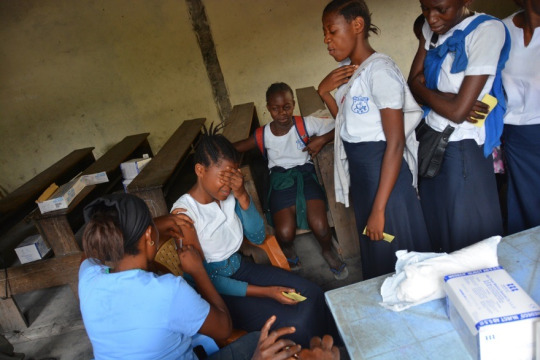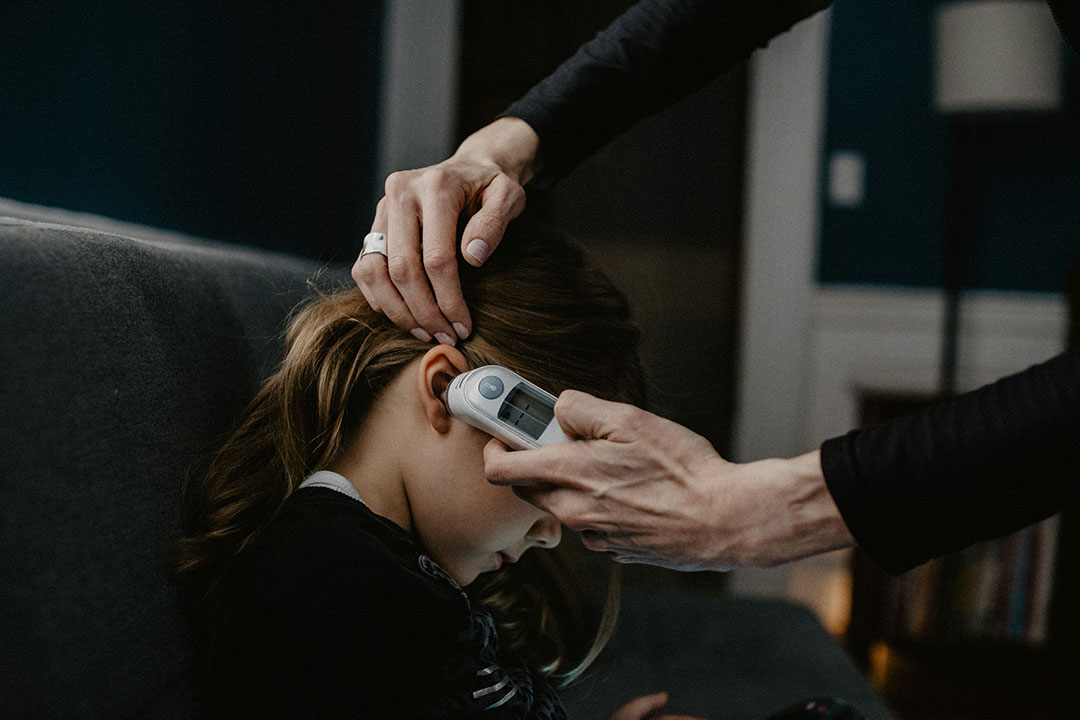Frederique Tissandier, Gavi.
This week, as yellow fever continued to spread across Angola, neighbouring Democratic Republic of Congo launched a Gavi-supported emergency campaign to vaccinate its citizens against the disease.
A total of 11 health zones in Kongo-Central and Kinshasa city provinces were targeted with an emergency yellow fever campaign, responding to an outbreak that started in the country three months ago.
“We are very satisfied with the current immunisation activities that are based on a set of urgent measures to contain the outbreak,” said the WHO representative, Dr Yokouidé Allarangar, also calling for intensified surveillance across all DRC’s health zones.

A school girl in Kinshasa, N’djili health zone receives the yellow fever vaccine. Photo: WHO/ Eugene Kabambi.
Close to 2 million people will receive the yellow fever vaccine during this campaign, which has mobilised around 2,000 vaccinators across more than 278 vaccination sites.

A health team about to be deployed also get vaccinated against yellow fever. WHO/ Eugene Kabambi.
This campaign scheduled to end on the 4th June, and follows DRC’s first yellow fever cases in March. Since then, 649 suspected cases have been reported, including 48 that were laboratory confirmed (41 imported from Angola) and 61 deaths. The Minister of Health Dr Félix Kabange Numbi officially declared the outbreak on 23rd April.
DRC shares an extremely long border with Angola (2 600 km) and the two countries have extensive commercial exchanges which increases the risk of transmission. Authorities fear that the outbreak could spread quickly because of the presence and activity of the aedes mosquito, as well as generally low immunisation coverage.

A WHO logistician verifies vaccines during an immunisation campaign in Matadi, Kongo Central. Photo : WHO/ Eugene Kabambi.
The yellow fever outbreak in Angola has already killed more than 300 people since it was declared in December 2015.
“The current situation in Central Africa is a reminder of the importance of investing in strong and sustainable routine immunisation programmes to prevent such outbreaks and protect populations’ health” said Dr Seth Berkley, CEO of Gavi, the Vaccine Alliance.






